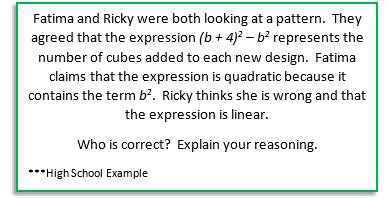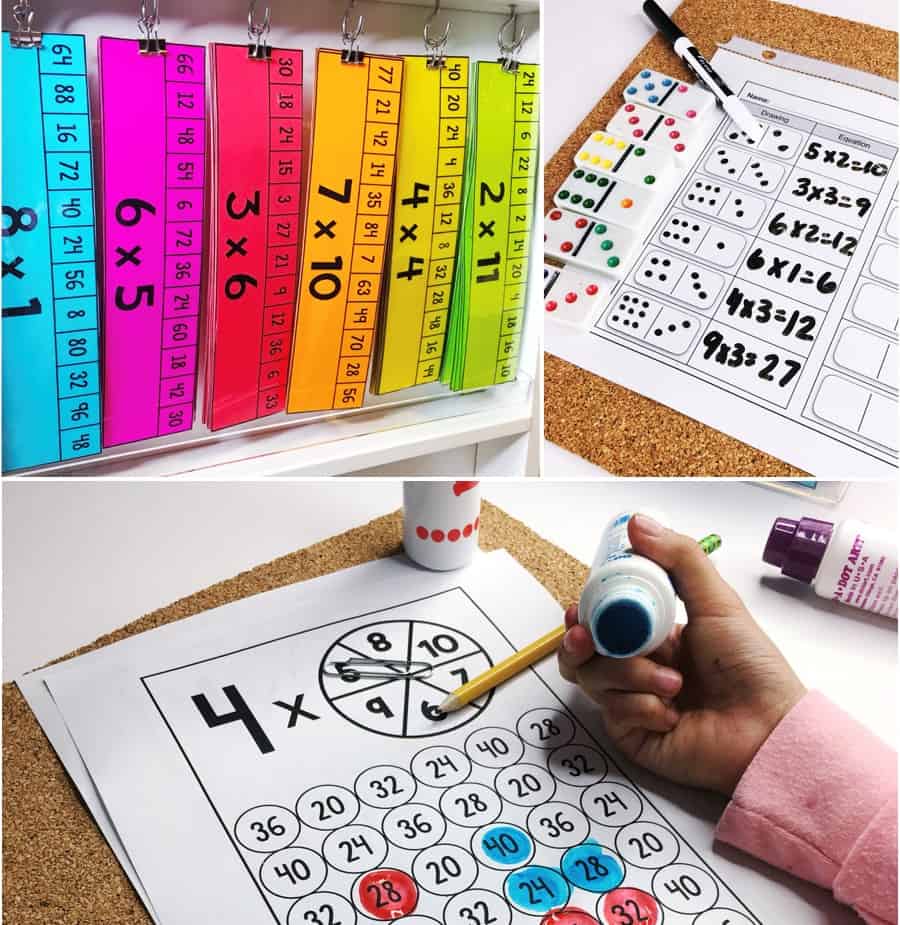One of reasons I became a teacher is that I get to share what I love about math with others. The beauty and the connections inherent in mathematics — these are things I am passionate about and I share that passion daily. When I see students who are engaged in my classes with that same level of passion, there is nothing that makes me prouder. Standard for Mathematical Practice (SMP) 3 — “Construct viable arguments and critique the reasoning of others” — provides an opportunity for us to see students exhibit that passion.
Many teachers believe that, by adding “explain your answer” to the end of a problem, they have covered SMP 3. While the addition of this phrase is a step toward constructing a viable argument, it is not attending to the full meaning of the standard. Our kids can do more and should be given opportunities to do more.
We can’t (or at least shouldn’t) create arguments out of thin air. Creating a thoughtful, evidence-based, unassailable position statement is a skill that we continue to hone throughout our lives – a skill that is critical to any career. In math, students need to learn how to create an argument: what constitutes evidence, how to ask questions to get more information, and how to analyze multiple examples to inform their argument. These are all components of SMP 3 and should be practiced even in the earliest grades.
In elementary grades, opportunities to practice SMP 3 could be based on the operations that students are working with. Below we see an opportunity for students to create an argument as well as a chance for students to critique the reasoning of others. These are different, yet very much interconnected, skills and instructional materials should prompt students to do both.
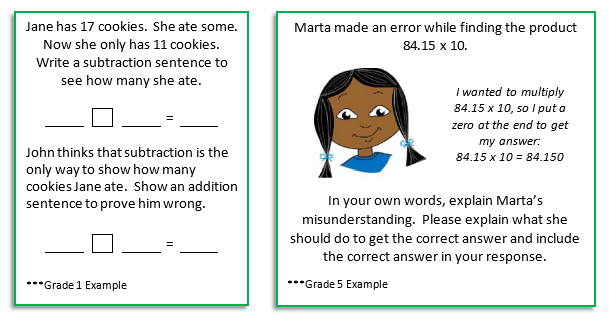 First question was adapted by the author. Second question is by Illustrative Mathematics: https://www.illustrativemathematics.org/content-standards/5/NBT/A/2/tasks/1524
First question was adapted by the author. Second question is by Illustrative Mathematics: https://www.illustrativemathematics.org/content-standards/5/NBT/A/2/tasks/1524
Looking at the examples, we begin to see more clearly the numerous skills that students must develop to be able to truly practice SMP 3. These include:
- Using prior results to develop arguments
- Providing counterexamples
- Justifying conclusions
- Identifying and explaining flaws in arguments
- Using questions to clarify reasoning
- Comparing multiple arguments to determine which is more effective
We can see how we are extending these skills as we look at work that students are doing in later grades.
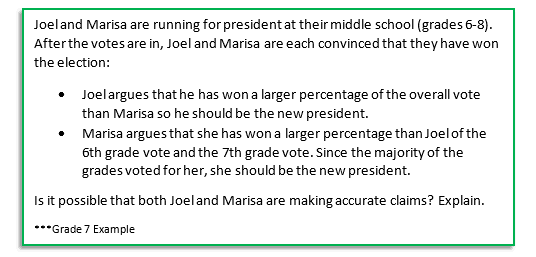 From Illustrative Mathematics: https://www.illustrativemathematics.org/content-standards/7/RP/A/tasks/1589
From Illustrative Mathematics: https://www.illustrativemathematics.org/content-standards/7/RP/A/tasks/1589
As we have seen, instructional materials can provide opportunities for students to construct arguments. A question can be presented as a request for students to justify their reasoning or as an argument for students to critique. Students can also be presented with multiple arguments and have to determine which is correct or more effective. While all of these problems do address key skills required for performing SMP3, the bigger theme of the math practice is being an effective communicator. Just because materials ask for an argument and one is written, it doesn’t mean that the argument is logical and makes sense to others. It is possible to learn how to structure arguments by critiquing, but to meet the full meaning of the math practice you need the feedback that comes from interacting with others and having them respond to the argument you present. Additionally, that interaction is the only way to find opportunities to ask clarifying questions
We want instructional materials to provide scaffolds and potential opportunities to attend to the full meaning of SMP 3, with the understanding that the structure of the course must be conducive to students engaging in discourse. This discourse will provide time for students to develop the skills of creating logical arguments and an understanding of how to ask quality clarifying questions.
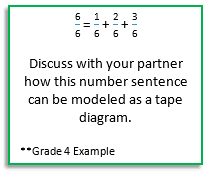 From Engage NY Grade 4: https://www.engageny.org/resource/grade-4-mathematics
From Engage NY Grade 4: https://www.engageny.org/resource/grade-4-mathematics
It is important to remember that a handful of these opportunities sprinkled throughout an entire year will not be enough to get students to share their excitement and passion for the math task they are engaged in. In my experience, the more opportunities students have to engage in this work, the more confident they become in sharing their understandings and reasoning. It is then that students will show a deeper passion for the work they are doing.

















